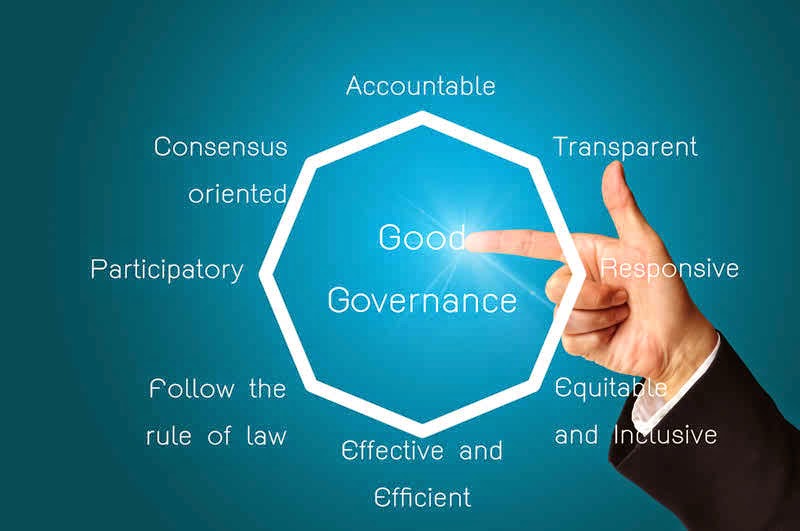Female politicians as double minority: A documentary, By Jibrin Ibrahim – Premium Times Nigeria

Report on the “Double Minority” Documentary: An Analysis of Barriers to Women’s Political Participation in Nigeria and Alignment with Sustainable Development Goals
Introduction: Documentary Overview and Core SDG Linkages
A documentary titled Double Minority, produced by Daria Media with support from the MacArthur Foundation, was recently premiered in Abuja. The film investigates the systemic challenges faced by female political candidates in Nigeria, chronicling the experiences of nine women who contested in the 2023 election cycle. This report analyzes the documentary’s findings, placing significant emphasis on their direct correlation with the United Nations Sustainable Development Goals (SDGs), particularly SDG 5 (Gender Equality), SDG 10 (Reduced Inequalities), and SDG 16 (Peace, Justice and Strong Institutions).
SDG 5: Gender Equality and Women’s Empowerment
The central theme of Double Minority is the critical lack of progress towards SDG 5, which aims to achieve gender equality and empower all women and girls. The documentary highlights Nigeria’s regression in this area, noting its global ranking of 178 out of 182 countries for women’s participation in governance. This directly contravenes SDG Target 5.5: “Ensure women’s full and effective participation and equal opportunities for leadership at all levels of decision-making in political, economic and public life.”
Key Barriers to Achieving SDG Target 5.5
The documentary identifies several significant obstacles that prevent women from achieving equal political representation. These barriers systematically undermine gender equality in the political sphere.
- Cultural and Religious Opposition: Female candidates are frequently subjected to criticism for allegedly disrespecting cultural and religious norms that confine women to domestic roles. Patriarchal interpretations are weaponized to challenge the legitimacy of their political aspirations.
- Negative Labelling and Defamation: A recurring tactic identified in the film is the use of slander, with all nine profiled women reporting they were labelled as “prostitutes” during their campaigns. This strategy aims to erode their moral standing and psychological resilience.
- Targeted Attacks Based on Marital Status: Candidates face contradictory attacks regardless of their marital status. Unmarried women are deemed inexperienced in managing a home, while married women are accused of abandoning their families for personal ambition.
- Financial Disadvantage and Monetized Politics: The highly monetized nature of Nigerian elections places female candidates at a significant disadvantage. They often face greater difficulty in fundraising and are outspent by male counterparts, limiting their campaign viability.
Implications for SDG 10 (Reduced Inequalities) and SDG 16 (Peace, Justice and Strong Institutions)
The marginalization detailed in the documentary extends beyond gender, impacting broader development goals. The systematic exclusion of women, who constitute a numerical majority of voters, is a stark example of the inequality SDG 10 seeks to eliminate. Dr. Kole Shettima of the MacArthur Foundation noted the political maneuvering that transforms a demographic majority into a political minority, undermining the principle of inclusive societies (SDG Target 10.2).
Furthermore, these challenges have severe implications for SDG 16, which calls for effective, accountable, and inclusive institutions. The documentary reveals a political environment where integrity is compromised.
- Erosion of Institutional Integrity: The testimony of veteran politician Hon. Nnenna Elendu–Ukeje highlights the infiltration of criminal elements into politics. This trend discourages individuals committed to public service and weakens the integrity of political institutions, contrary to the aims of SDG 16.
- Lack of Representative Decision-Making: The exclusion of women leads to non-representative governance, failing to meet SDG Target 16.7, which is to “ensure responsive, inclusive, participatory and representative decision-making at all levels.”
Recommendations for Structural Change and SDG Advancement
The premiere event and the documentary itself concluded with calls for concrete action to dismantle these barriers and align Nigeria’s political landscape with global development standards. The following recommendations were emphasized:
- Legislative Reform: Urgent support for legislation such as House Bill 1349 is required to create structural and legal pathways for expanded political opportunities for women.
- Sustained Advocacy: A shift from rhetoric to organized advocacy is necessary to apply consistent pressure on political parties and governmental bodies to implement gender-inclusive policies.
- Combating Negative Narratives: Concerted efforts are needed to challenge and dismantle the harmful cultural stereotypes and defamatory labels used to delegitimize female politicians.
- Strengthening Institutional Gatekeeping: A collective resolve is needed to protect the political arena from criminal infiltration and ensure that politics remains a viable path for citizens with integrity and a commitment to public service, thereby strengthening democratic institutions as envisioned in SDG 16.
Analysis of Sustainable Development Goals in the Article
-
Which SDGs are addressed or connected to the issues highlighted in the article?
The article primarily addresses two Sustainable Development Goals (SDGs):
- SDG 5: Gender Equality
This goal is central to the article, which focuses on the “mistreating and marginalising half of our society” by highlighting the systemic barriers women face in Nigerian politics. The documentary “Double Minority” chronicles the journey of female political candidates, detailing issues like cultural bias, targeted violence, negative labeling (“prostitute”), and limited funding. The article explicitly states that “the representation of women in elective and appointive office has been shrinking rather than growing,” directly connecting to the goal of achieving gender equality and empowering all women and girls. - SDG 16: Peace, Justice and Strong Institutions
This goal is relevant because the article discusses the health and inclusivity of Nigeria’s political institutions. It points out the failure of the political system to ensure representative decision-making, as evidenced by Nigeria’s low ranking (178 out of 182 countries) in women’s participation in governance. Furthermore, the article touches on the erosion of institutional integrity with the mention of “convicted and not yet convicted criminals” invading the political arena, which undermines the development of effective, accountable, and transparent institutions. The call for “structural change” and support for “House Bill 1349” to expand political opportunities for women is a direct appeal to strengthen institutions to be more inclusive and just.
- SDG 5: Gender Equality
-
What specific targets under those SDGs can be identified based on the article’s content?
Based on the article’s content, the following specific targets can be identified:
- Target 5.5: Ensure women’s full and effective participation and equal opportunities for leadership at all levels of decision-making in political, economic and public life.
This target is the core issue of the article. The text laments that “the representation of women in elective and appointive office has been shrinking” and that political maneuvering “consistently turns them into political minorities.” The entire documentary and the article’s analysis are about the struggle for women to participate and lead in Nigeria’s political landscape. - Target 5.2: Eliminate all forms of violence against all women and girls in the public and private spheres, including trafficking and sexual and other types of exploitation.
The article provides clear examples of psychological and verbal violence against female politicians. It notes that “Every single woman featured in the documentary was called a prostitute at some point during her campaign” and mentions the “deeply destabilising use of negative labelling” and “targeted violence” they face for aspiring to public office. - Target 16.7: Ensure responsive, inclusive, participatory and representative decision-making at all levels.
This target is directly addressed when the article highlights Nigeria’s “shameful position” of ranking 178 out of 182 countries in women’s governance participation. The concern that a situation could arise “in which only men will represent Nigerian women in national policy making” underscores the lack of inclusive and representative decision-making. The call to support House Bill 1349 is an action aimed at achieving this target.
- Target 5.5: Ensure women’s full and effective participation and equal opportunities for leadership at all levels of decision-making in political, economic and public life.
-
Are there any indicators mentioned or implied in the article that can be used to measure progress towards the identified targets?
Yes, the article mentions and implies several indicators:
- Indicator for Target 5.5 & 16.7 (Proportion of seats held by women in national parliaments and public office):
The article provides a direct, though comparative, indicator by stating, “Nigeria currently ranks 178 out of 182 countries in terms of women’s participation in governance.” It also notes that the representation of women “has been shrinking rather than growing,” implying that the number and proportion of women in elective and appointive offices is a key metric being tracked. - Indicator for Target 5.2 (Prevalence of violence and harassment against women in politics):
While not providing a quantitative statistic, the article implies this indicator through qualitative evidence. The statement that “Every single woman featured in the documentary was called a prostitute” and the description of “demeaning insults, targeted violence and limited funding” serve as evidence of a high prevalence of psychological and economic harassment against women in the political sphere. Measuring the frequency and nature of such incidents would be a direct indicator of progress. - Indicator for Target 16.7 (Adoption and implementation of legal frameworks for inclusion):
The article points to a specific policy-based indicator by highlighting the call to support “House Bill 1349, a piece of legislation aimed at expanding political opportunities for women in Nigeria.” The passage and effective implementation of such laws would be a clear indicator of progress towards creating more inclusive institutions.
- Indicator for Target 5.5 & 16.7 (Proportion of seats held by women in national parliaments and public office):
SDGs, Targets, and Indicators Table
| SDGs | Targets | Indicators Identified in the Article |
|---|---|---|
| SDG 5: Gender Equality | Target 5.5: Ensure women’s full and effective participation and equal opportunities for leadership at all levels of decision-making in political, economic and public life. | Proportion of women in political office. The article states this is “shrinking rather than growing” and cites Nigeria’s rank of “178 out of 182 countries in terms of women’s participation in governance.” |
| SDG 5: Gender Equality | Target 5.2: Eliminate all forms of violence against all women and girls in the public and private spheres. | Prevalence of psychological and verbal violence. The article notes that female candidates face “targeted violence” and that “Every single woman featured… was called a prostitute.” |
| SDG 16: Peace, Justice and Strong Institutions | Target 16.7: Ensure responsive, inclusive, participatory and representative decision-making at all levels. | Existence of legal frameworks to promote inclusion. The article mentions the call to support “House Bill 1349, a piece of legislation aimed at expanding political opportunities for women.” |
Source: premiumtimesng.com

What is Your Reaction?
 Like
0
Like
0
 Dislike
0
Dislike
0
 Love
0
Love
0
 Funny
0
Funny
0
 Angry
0
Angry
0
 Sad
0
Sad
0
 Wow
0
Wow
0












































































